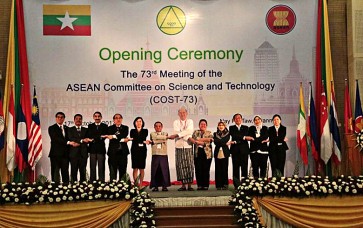Popular Reads
Top Results
Can't find what you're looking for?
View all search resultsPopular Reads
Top Results
Can't find what you're looking for?
View all search resultsInsight: Why ASEAN needs 'decentralize' regionalism
We could consider two broad directions as far as the meetings go
Change text size
Gift Premium Articles
to Anyone
T
he 31st ASEAN Summit and its related meetings, including the East Asia Summit (EAS), will take place on Nov. 10-13. Lost in the brouhaha over Donald Trump’s attendance and ongoing tensions on the Korean Peninsula, is the critical agenda of ASEAN Secretariat (ASEC) reform.
Prompted by the infamous 2012 Cambodian chairmanship, regional leaders declared at the 2014 ASEAN Summit in Myanmar that they were committed to “strengthening ASEAN’s institutional capacity to support ASEAN Community building, through streamlining and improving its work processes and coordination among ASEAN Organs and Bodies, enhancing the conduct of ASEAN’s external relations and strengthening the ASEAN Secretariat.”
Analysts and policymakers have since proposed various institutional reform policies to fulfil this commitment. The problem of ASEC reform, however, has been particularly difficult to address. The complexities surrounding its budgetary structure, professional staff development, to the empowerment of the Secretary-General have been herculean at times.
One area to further consider is perhaps the more “banal” problem of having too many meetings. The ASEC organizes more than 1,000 meetings a year. It must do so with a small staff of around 300 people with a miniscule budget of about US$20 million.
Some of these meetings should be aligned with the local host (i.e. ASEAN chair), which further raises the complexity and cost. As ASEAN chair this year, the Philippines hosted and organized 283 meetings at a cost of about $300 million. It’s not surprising that some believe we could see almost 1,600 ASEAN-related meetings by 2020.
If we’re not willing to review and amend the ASEAN Charter to revise the “equal contribution” article that finances the ASEC, then we should at least consider reforming the meetings. After all, the meetings have become cumbersome and often move in their own separate rhythms without an integrated framework to assess strategic outcomes.
We could consider two broad directions as far as the meetings go.


















